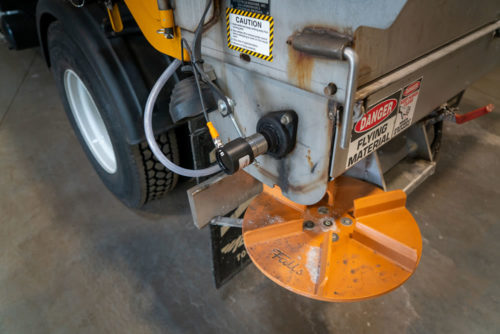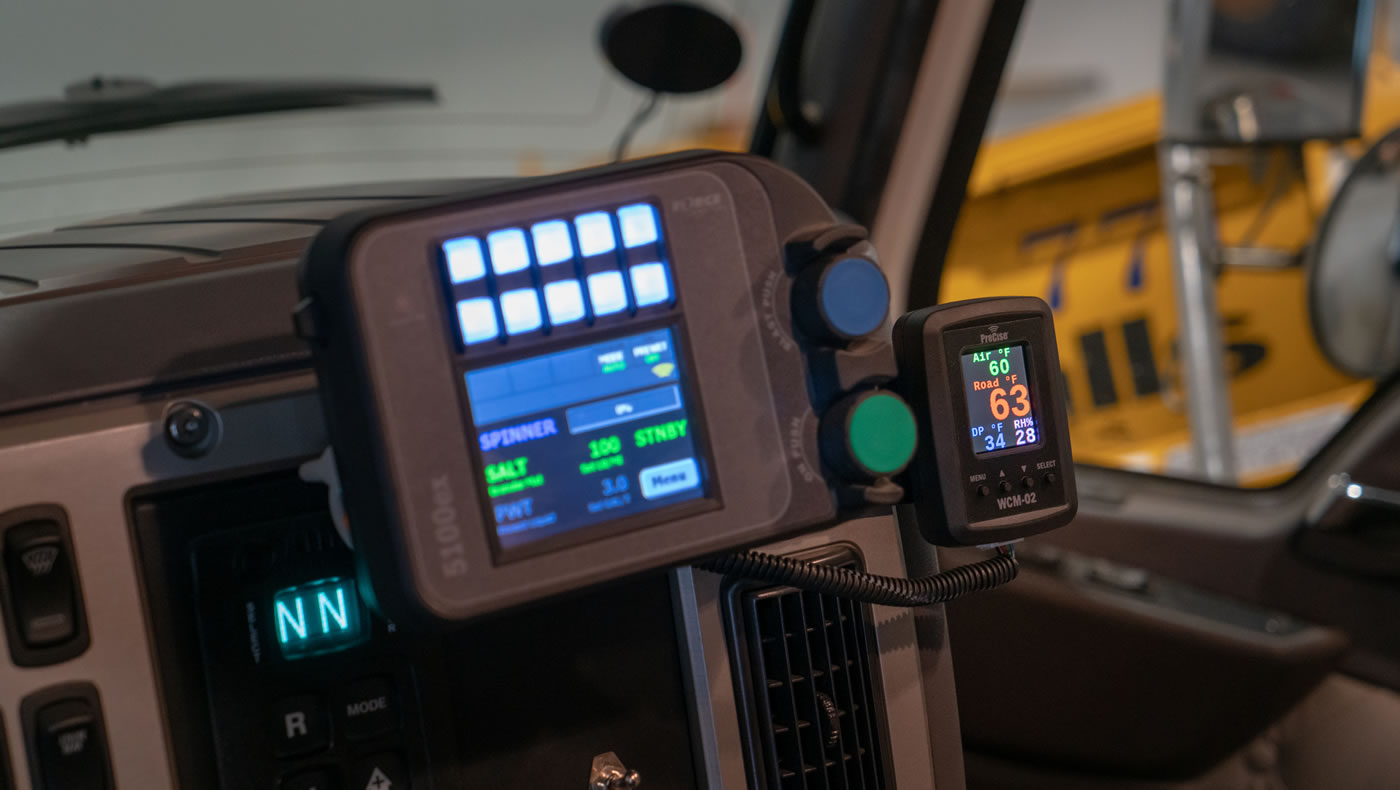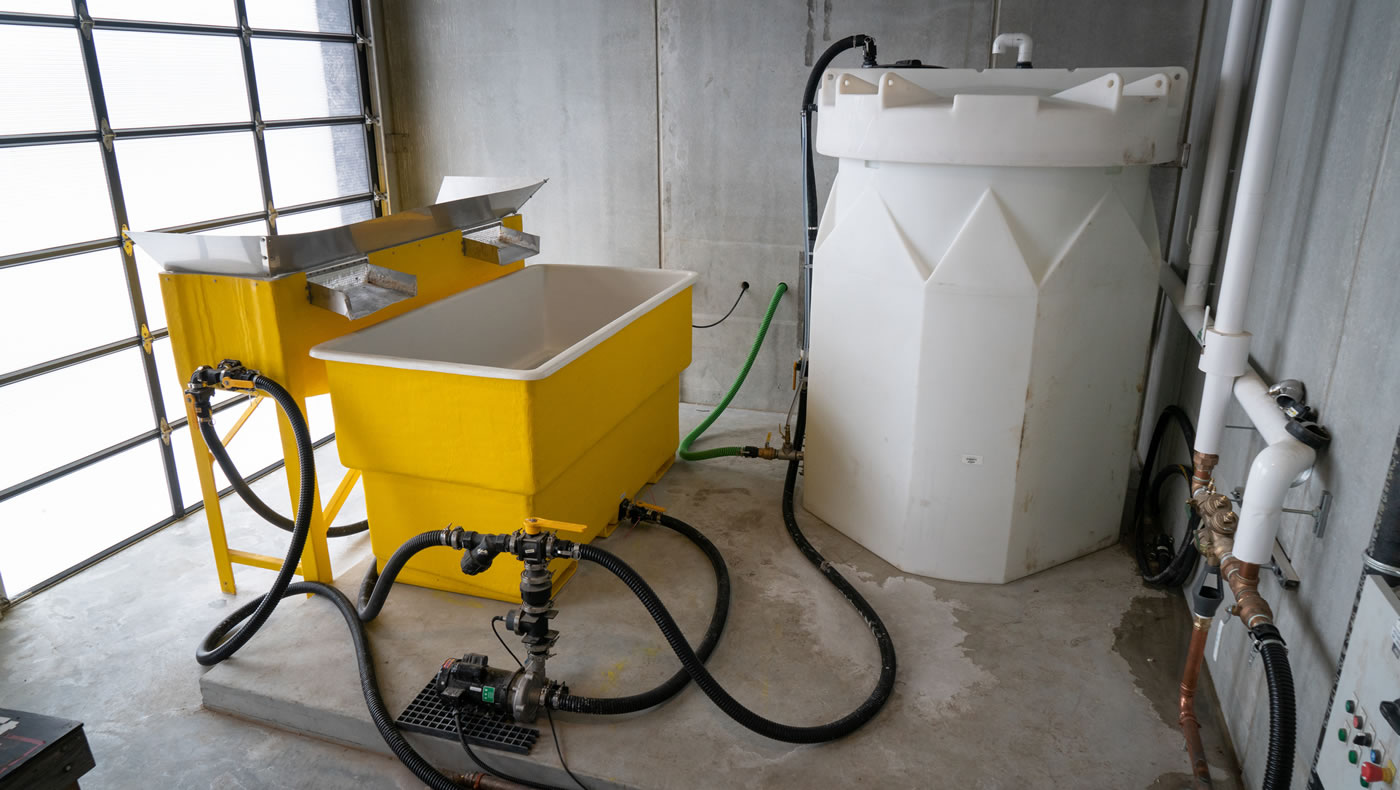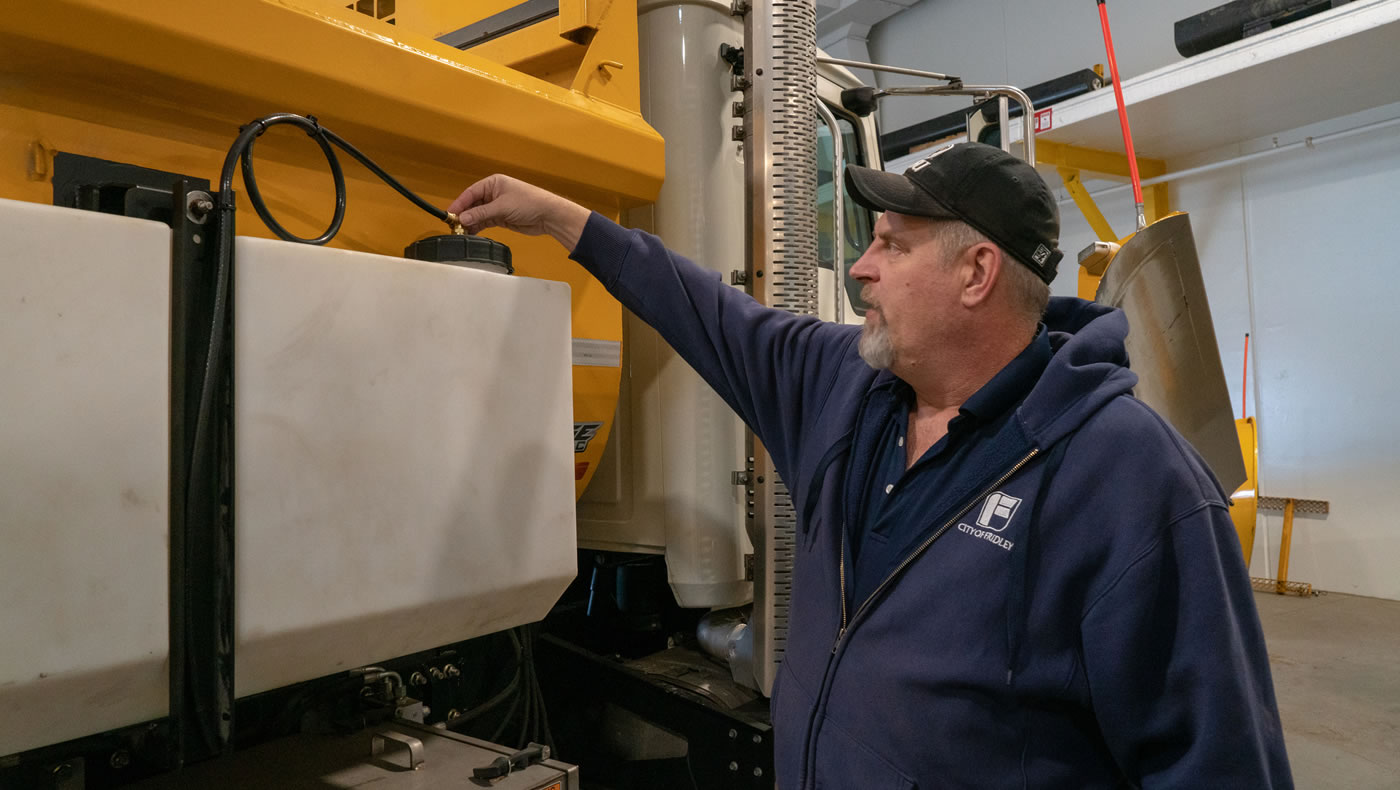Upgraded Snow-Fighting Equipment Helps Fridley Reduce Water Pollution
This month, the City of Fridley began deploying a fleet of upgraded snow plow trucks that will do a better job of keeping ice off the roads while also reducing water pollution. With help from an MWMO grant, the city outfitted its 20-ton plow trucks with salt brining equipment that will make road salt stick to the pavement and help drivers apply the right amount of salt on the city’s approximately 104 miles of roadways.
Liquid salt brine presents a number of advantages over dry rock salt. From a road safety perspective, salt that is “pre-wetted” with brine is more effective: it melts ice faster, and in lower concentrations, than dry salt alone. It also ensures that the salt stays in its intended application zone.
“The problem with dry salt is when the salt hits the road, it bounces off to the side, so you lose a large percentage of it that goes to the curbs,” said City of Fridley Streets and Parks Operations Manager Jeff Jensen. “With salt brine in there, it makes the salt stick to the road.”

The city estimates these improvements will allow them to use 20-40 percent less salt on their roadways each year — and that has some important environmental benefits.
Chloride, the key ingredient in salt and other road deicers, is a major source of water pollution in Minnesota. It is toxic to aquatic wildlife and is a permanent pollutant — practically impossible to remove from waterbodies once it’s there. According to the Minnesota Pollution Control Agency, 365,000 tons of road salt is scattered around the metro area each year, and 78 percent of it ends up in groundwater or surface waters.
Environmental Planner Rachel Workin says the City of Fridley wants to be a part of the solution. The city had been eager to use brine on its roads, but until recently it lacked the facilities to make the brine. That changed earlier this year when the public works staff moved to their new building, which was constructed with a special room set aside for brine-mixing equipment.
“When we moved into our new facility, we had the capability to start producing brine, but we didn’t have the funds available to purchase the equipment to apply the brine to the road,” Workin said. “So, we reached out to the MWMO to help us with the process of updating our snow plow equipment.”
The MWMO awarded the city an $80,557 grant to acquire the necessary smart salting equipment. The trucks were outfitted with brine application systems, which consist of a tank and hose that attach to the truck and spray (or “pre-wet”) the dry salt. The system allows drivers to set the desired concentration of brine and salt. Sensors on the trucks monitor and adjust salt application rates based on the speed of the plow, so that the trucks don’t apply too little salt when speeding up or too much salt when slowing down.

Other upgrades include a road temperature sensor, a GPS vehicle location system and the ability to collect and report data on salt usage. Jensen said this will help the city find additional efficiencies in its winter maintenance operations.
“The best part about this new equipment is not only does it apply salt brine with our salt to reduce the usage, but it also has recording capabilities,” Jensen said. “With the four new trucks, I can keep track of how many pounds per lane mile of salt we’re using, and I can keep track of how many gallons of brine per lane mile we’re using.”
The city also used some of the MWMO funds to purchase an anti-icing trailer. This allows public works crews to spray salt brine directly onto pavement in advance of a winter storm. This helps prevent snow and ice from bonding to the roadway, and reduces the amount of salt and deciers needed to remove it after the storm passes.
Jensen said he looks forward to the cost savings the new equipment will bring. Road salt is the single largest expenditure in the city’s annual road maintenance budget. Last winter, the city applied nearly 714 tons of salt on its roads, spending a total of $51,970.46 on dry salt. Due to price increases, city officials originally expected to spend an additional $10,000 on salt this year — instead, they’re now looking forward to a cost reduction.

Fridley plans to monitor the amount of salt and brine it applies and report back to the MWMO on any resulting salt reductions and cost savings from the new equipment. City staff will also complete the MPCA’s Smart Salting Assessment Tool at the end of each winter season, helping them find additional opportunities to reduce salt usage.
Finally, as a side benefit, Fridley will also be supplying salt brine for public works crews at the City of Columbia Heights, which has the application equipment but not the brine-making equipment. (Columbia Heights will pay Fridley for the brine it uses.)
Workin said the city has trained its drivers on smart salting techniques, and is now looking forward to be able to apply them with the new equipment. She said the city recognizes the importance of protecting water quality — not just for its own residents, but also for those who live downstream.
“The City of Fridley is really defined by the waterways in our city, like the Mississippi River, Rice Creek and Moore Lake. It’s part of our identity,” Workin said. “Fridley is also where the drinking water intakes for the cities of Minneapolis and St. Paul are. So the amount of salt we put on our roads impacts not just our citizens, but also a large number of Minnesotans.”




